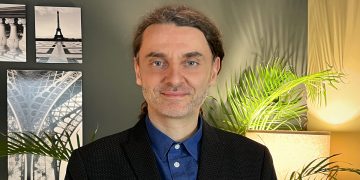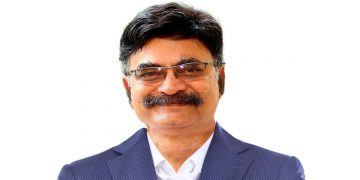Koneru Lakshman Havish, Vice President of KL Deemed to be University, brings a unique blend of industrial engineering, entrepreneurship, and creativity into his leadership role. With a clear vision to modernise higher education and make it future-ready, he emphasises the importance of innovation, technology integration, and global collaboration while ensuring accessibility for Indian students. In this conversation, he shares his perspectives on leadership, academic transformation, and the evolving role of universities in shaping tomorrow’s leaders.
Q. How has your degree in Industrial Engineering shaped your approach to leadership and innovation in education?
Industrial Engineering taught me to optimise not just systems, but people and outcomes. That mindset shapes my leadership in education—reducing inefficiencies, enhancing engagement, and streamlining administration with rigour and empathy. I see education as a dynamic system: identify gaps, innovate solutions, implement, and refine. This balance of logic and empathy is what modern education needs to truly empower learners.
Q. What are the key factors that have contributed to the KL Deemed to be University’s growth and reputation under your leadership?
Growth isn’t a coincidence, it’s the result of clarity of vision, consistency in execution, and a culture that thrives on excellence. We’ve built a reputation by staying ahead of trends: integrating cutting-edge technology, nurturing a start-up ecosystem, forming global collaborations, and putting students at the centre of everything. Most importantly, we never settle. Instead, we challenge ourselves to grow faster, think smarter, and dream bigger.
Q. How do you see the intersection between education and entrepreneurship? What steps is KL University taking to foster a culture of innovation and entrepreneurship among students?
Education shouldn’t just prepare you for a job, it should prepare you to create jobs. At KL Deemed to be University, we’ve embedded entrepreneurship into our DNA. From start-up incubation centres and seed funding programmes to live pitch sessions and mentor networks, we give students real-world exposure. The world needs bold thinkers and risk-takers—we’re in the process of building them.
Q. As Vice President, you play a pivotal role in driving academic innovation. Could you share some of the most significant initiatives or programmes introduced at KL Deemed to be University to modernise the academic curriculum?
We’ve moved beyond chalk and talk. Our Smart Campus initiative has revolutionised learning, with AI-enabled platforms, real-time analytics, hybrid classrooms, and blockchain-based certifications. We’ve introduced industry-aligned micro-credentials, modular learning paths, and interdisciplinary electives that allow students to shape their own journey. Every programme is now designed not just to teach but to transform.
Q. With increasing globalisation, how do you ensure that KL Deemed to be University stays aligned with international standards in higher education while still addressing the unique needs of Indian students?
It’s about balance. We align with global academic benchmarks, collaborate with top international institutions, and bring in cross-cultural learning opportunities, all while staying grounded in the Indian context. Our curriculum reflects global relevance with local resonance. We encourage students to think globally, act locally, and lead responsibly. That’s how we create leaders who are both rooted and ready for the world.
Q. How important is it for educational institutions to adapt to new technologies and digital learning tools?
It’s no longer optional, it’s essential. The future of education is tech-driven, data-informed, and learner-centric. From AI tutors to immersive VR labs and predictive learning platforms, we’re not just integrating technology, but also pioneering it. Students today are digital natives. To connect with them, education must evolve into an experience—interactive, adaptive, and intelligent.
Q. How has your experience in acting and entrepreneurship influenced your approach to education and leadership at KL University?
Acting taught me the power of storytelling, presence, and empathy—qualities every leader needs. Entrepreneurship taught me to embrace failure, move fast, and never stop innovating. Education, to me, is the perfect stage and start-up—a space to inspire, a space to build. At KL, I combine both worlds to create an ecosystem that’s emotionally engaging, intellectually challenging, and future-ready.
Q. In your opinion, what are the biggest challenges facing higher education in India today?
The biggest challenge is relevance. The world is changing faster than syllabi. We must teach what matters and teach it well. This means continuously updating curriculum, integrating life skills, and bridging the academia-industry gap. Another major issue is accessibility, and we’re addressing it with remote learning, scholarships, and vernacular support. Higher education must become higher in impact, not just in degree.
Q. As an academic leader, what role do you see for interdisciplinary studies in shaping the future of education?
The world’s problems don’t come in silos and neither should education. Whether it’s climate change, AI ethics, or public health, solutions demand interdisciplinary thinkers. At KL, we encourage students to cross boundaries—mix engineering with psychology, business with design, coding with storytelling. That’s how innovation truly happens—at the intersection of disciplines, ideas, and people.
Q. Looking ahead, what is your vision for the future of KL University? How do you plan to continue driving growth and maintaining excellence in higher education?
My vision is clear: To make KL Deemed to be University a global benchmark for future-ready education, a place where ideas turn into action, students turn into leaders, and learning knows no limits. We’ll keep pushing the envelope with smart campuses, international tie-ups, outcome-driven programmes, and student-first policies. More importantly, we’ll keep listening—to students, to society, to the world—and lead with purpose. The journey is just beginning.
Koneru Lakshman Havish envisions KL Deemed to be University as a global hub of innovation, entrepreneurship, and academic excellence. With a focus on relevance, technology, and interdisciplinary learning, he aims to transform higher education into an ecosystem where students are not only prepared for the future but also empowered to shape it. His leadership reflects a bold commitment to redefining education for a rapidly changing world.




























































